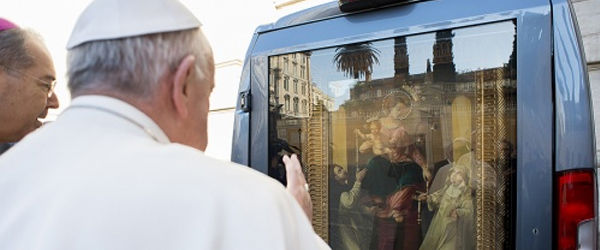When newly-ordained Missionary of Africa Father Rémi Sainte-Marie arrived in Malawi in 1964, the former British protectorate of Nyasaland had just declared its independence, creating great expectations among its population and the international community.Forty-eight years later, the Canadian priest — ordained Archbishop of Lilongwe (capital city) in February 2011 — is again witnessing a somewhat favorable political climate with the new president Joyce Banda, who took office in April after the abrupt death of former president Bingu wa Mutharica (for two consecutive five-year terms). She was his vice-president and became the first woman to lead an East African country.The change has brought renewed hopes to the struggling agricultural East African nation struck by continuous droughts, decades of corruption and the spread of HIV/AIDS that have left the majority of its 14 million inhabitants living in a subsistence economy. About 70 percent live under the poverty line, and the daily average wage is 48 cents, according to Archbishop Sainte-Marie. Malawi — whose population is about 80 percent Christian, most of them Catholic and Presbyterian — is also seeking support from the faith community. In mid-July, Archbishop Sainte-Marie met with Archbishop José Gomez at the Archdiocesan Catholic Center, requesting increased support from the L.A.’s Catholic community. Earlier, the visiting archbishop — invited by the archdiocesan Mission Office — made appeals at St. Mel Church in Woodland Hills and St. Mary Magdalen Church in L.A.Covering an area of about 9,276 square miles, the Archdiocese of Lilongwe serves about 1.5 million Catholics (from a total population of 4.9 million) in 35 parishes (four more are under construction.) Most of them serve through stations in remote rural areas where priests’ visits are scarce. The 58 diocesan priests and 52 missionaries receive very low stipends that do not allow them to purchase their own transportation. Many of them use bycicles or are transported by parishioners. With limited resources, the archdiocese operates 17 hospitals and health care centers in the city and rural areas with medical personnel partly paid by the government, which also grants subsidies to Catholic schools.There are 310 diocesan educational institutions, including a minor seminary and two technical colleges, plus two private secondary schools, 31 day community secondary schools and 275 elementary schools. The Archdiocese of Lilongwe also administers 26 orphanages, whose residents are suffering HIV/AIDS. (There are more than one million orphans nationwide.)“Many times orphans are at the care of an older sibling in their teens or grandparents and the struggle to survive is a daily one where the main focus becomes finding enough food for one meal a day,” said St. Mel parishioners Pia and Anselm Varni, who helped create an orphan outreach program in the Diocese of Lilongwe, sponsored by Catholic Relief Services. “It is not uncommon,” they added, “for a young woman to compromise her own self for a few pennies to feed her younger siblings. The ability to plan for the future or be creative outside of the survival mode is next to impossible.”Tourism, outreach and vocationsIn an effort to improve its economy, the government has opened its doors to Chinese investors in tourism. “They are building roads and five-star hotels,” said the archbishop. Although this offers opportunity for work, the majority of Lilongwe residents lack basic public services, such as water and electricity. There is scarce public transportation and almost no hope for many to own their own cars when a gallon of gasoline costs nearly $10.Throughout the years the Church has built a strong Justice and Peace Office in order to respond to its parishioners’ needs. In a recent statement signed by seven bishops, they urged Banda to restore relations with the British and U.S. governments, broken during Mutharica’s ruling, seeking financial support to fight high unemployment. According to reports, more than 1.3 million young people are unemployed in the African country and although many qualify for university each year, they are kept on a waiting list due to limited space at higher education academic institutions.On the positive note, said the visiting archbishop, vocations are growing, with 58 major seminarians.Although receiving financial support from the Vatican, the archbishop — who will submit his resignation next January when he turns 75 — said the challenging economic atmosphere requires even more funds to invest in education and health in order to continue its mission of evangelization.“When I get back we will discuss a strategic plan for the future of the church,” he said. The archdiocese will publish a document with a thorough plan for the next 20 years, he said.For more information about the Archdiocese of Lilongwe, Malawi, or to make donations, email [email protected].{gallery width=100 height=100}gallery/2012/0907/malawi/{/gallery}

